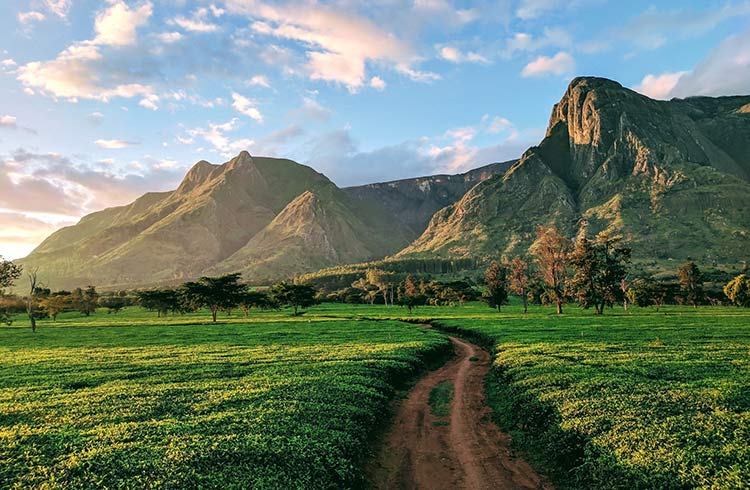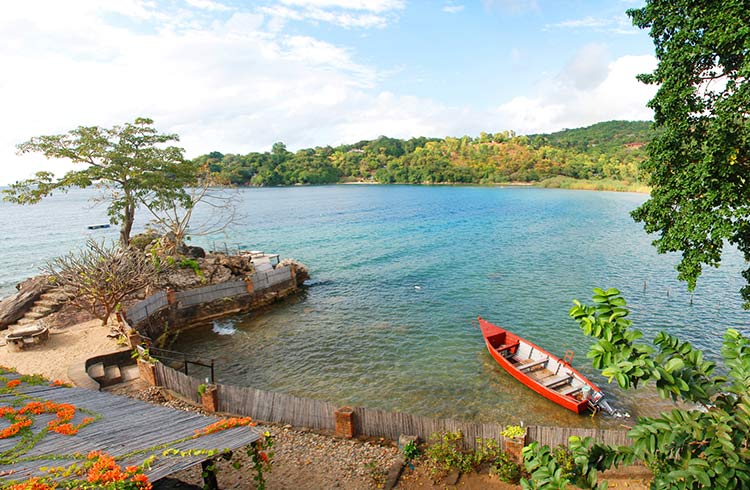Travel to Malawi: Visas and Essential Transport Safety Tips
Everything you need to know about staying safe while traveling in Malawi, from visas to transport, this is what you need to know.
 Photo © Getty Images/Jason Grunstra / EyeEm
Photo © Getty Images/Jason Grunstra / EyeEm
Visas for Malawi
Before you go to Malawi, make sure you have a valid passport with atleast six months left before expiry from your intended exit date.
All travelers entering Malawi must show proof of a return ticket or onward ticket with documentation for your next travel destination. You must also have sufficient funds to cover your expenses while in the country.
Click here to find out if you are eligible for a visa on arrival, or if you need to organize your visa prior to arriving in the country. If you do require a visa, you need to obtain one from The Embassy of the Republic of Malawi. Visa applications are usually processed within three days, but organize this early to avoid any unexpected delays.
Travelers cannot stay in the country for longer than 30 days without prior permission. You can extend your initial 30-day permit for an additional 60 days, but you must be proactive and organize this to avoid troubles with ovestaying your visa.
How to get to Malawi
Malawi has two international airports; Kamuzu International Airport (also known as Lilongwe International Airport) serves the capital Lilongwe, and Chileka International Airport serves the former capital Blantyre.
Malawi Airlines operates regular flights between major cities like Lilongwe, Blantyre and Mzuzu, and to Club Makokola near Lake Malawi. Charter flights are available to many smaller destinations and tourist centres including Liwonde National Park and Likoma Island.
Once in Africa, the main border crossings are to and from South Africa, Zambia, Mozambique and Tanzania. Convenient road access to all these countries is by car or by bus. Bus fares are incredibly cheap, but public transport is unreliable in the country.
How to get around Malawi safely
Malawi has a dense and comparatively well maintained road network. Many main roads and frequently used minor roads have been tarred, and bridges have been renewed and upgraded. Tar roads are generally in good shape and potholes are rarely found.
Rural roads are not tarred, and are subject to poor weather conditions. In the dry season they may be corrugated and pot holed. In the wet season, they are impassable or simply washed away from heavy rain.
Be wary of navigating using online maps while driving around Malawi – secondary or tertiary roads are often arbitrarily sketched in, and unclassified roads are generally missing. Check with locals if you're not confident the maps are correct.
Apart from a few main road turnoffs, road signs are virtually non-existent. Those that exist are very old and often hard to spot, painted black with faded, white lettering.
Understandably, the rural population prefer to travel by bike or walking beside livestock along the roads. This impels any thoughtful driver to slow down.
In major cities, street lighting is common. In rural areas, it is non existent.
The condition of rural roads, their use by pedestrian and livestock, presence of abandoned vehicles on the roadside, the non-existence of street lighting and the tendency of some drivers to travel at night without their lights on are all strong arguments to deter visitors from driving at night.
Speed cameras have been introduced on many main roads, and drivers may be breath-tested. The blood alcohol limit is 0.08. Anyone caught speeding or exceeding the legal alcohol limit may have their license, their vehicle, or both confiscated on the spot. Penalties include fines, or imprisonment or both.
When driving, you must carry personal identity, vehicle registration and ownership papers.
Fuel shortages are still common throughout Malawi. Please be aware of this if you are traveling long distances between fuel stops.
Train travel in Malawi
Until privatisation in 1999, the national rail network in Malawi was run by Malawi Railways, a government corporation. Although mainly used for freight traffic, a government subsidized passenger rail service operates thrice weekly in both directions from Blantyre to Makhanga and to the border with Mozambique at Nayuchi.
Train services are slow, overcrowded and erratic – they offer no advantages over road travel and are not commonly used by travelers.
Traveling by ferry on Lake Malawi
A number of ferries operate on Lake Malawi. MV Ilala traverses Lake Malawi from north to south and back again once a week. It provides a unique way of getting around the country, and is a cheap option for traveling to offshore islands and across to Mozambique.
The Ilala, was built in Scotland in 1949 for Nyasaland Railways, dismantled, transported in pieces to Malawi (then Nyassaland) and rebuilt there. It started operating in 1951. It replaced the original Ilala, built in 1875 and named after the Ilala region of Zambia where David Livingstone was first buried. The ship does not meet current international requirements for passenger ships, but there are plans to build a replacement.
Mtendere used to cruise the southern part of the lake. MV Songea sails between Mbamba Bay (Tanzania) to Nkhata Bay on Malawi's northern lakeshore.
While these ferries are not quite up to scratch with safety standards, they represent the cheapest mode of travel to and from the African countries that surround Lake Malawi.
Related articles
Simple and flexible travel insurance
You can buy at home or while traveling, and claim online from anywhere in the world. With 150+ adventure activities covered and 24/7 emergency assistance.
Get a quote
No Comments